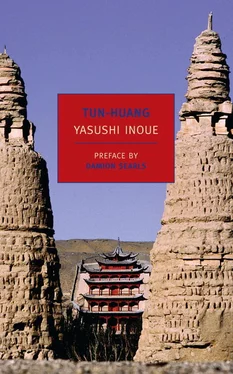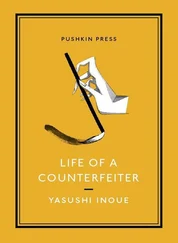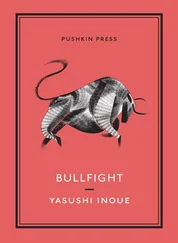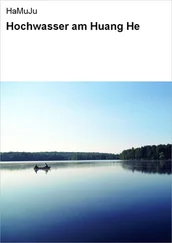Hsing-te felt no particular reaction at Wang-li’s words. Even if he left his unit and worked for the ruler, he didn’t think it would mean very much to him. Whether such a day would come or not was completely in the hands of fate. He probably would not refuse to go back to China, but he did not think he would actively seek to return. He was much more interested in the inner thoughts of this old mercenary who had broached the subject.
“Enough about me. What are your plans?” Hsing-te asked.
“Me? Well, I have something to do.”
“And what’s that?”
“Don’t you know? Don’t you know what’s on my mind daily?” Wang-li gave a boisterous laugh, then added emphatically, “I have something I must do!” But Wang-li would not explain what that “something” was. Hsing-te had no idea what Wang-li intended, but he was sure that Wang-li would some day accomplish his plan. Whenever he set his mind on something, he always accomplished it.
The distance from Su-chou to Kua-chou was about two hundred and twenty-five miles, a ten-day journey. The desert road was almost entirely covered with ice. On the second day the men traveled on; snow-capped mountains lay to the north and south. Then for four days they continued across deserts through driving blizzards. On the sixth day they crossed several dry tributaries of the Shu-le River, and the unit finally entered a grassy plain. Here, too, the ground was frozen. They traveled through icy, windswept deserts again on the seventh and eighth days, and came out once more on grassland on the ninth day.
At noon of the tenth day, Wang-li’s troops headed through the fierce winds that swept down from a corner in the heavens and entered Kua-chou. The walled city had three gates, in the east, west, and south. Wang-li’s men entered by the East Gate, where the Kua-chou force, comprising various races, had lined up to meet them. In no time the small city was brimming over with five thousand new troops and countless horses and camels. Kua-chou was built on wasteland. Even the streets had piles of sand in them. Walking there was no different from walking in the desert.
For three days and nights after their arrival, winds raged so fiercely that the tops of the ancient walls seemed ready to give way. It was said that there were few windless days here.
Hsing-te could hardly bear the constant howling winds. Nevertheless, since his arrival he had regained the settled feeling he had lacked for years. Among the traders were many Chinese, who sold sheep’s wool or animal skins, and also among the farmers, who hawked vegetables and various grains. There had been many Chinese in Su-chou too, but their customs and manners had not been Chinese. It was different in Kua-chou; much of their speech, customs, and dress was reminiscent of the mother country. The walls and gates were older, in disrepair, and smaller than those of other fortified cities Hsing-te had seen, but everything he looked at seemed familiar. For a while, Hsing-te walked around the windswept town every day.
On the seventh day after their arrival, Hsing-te and several friends accompanied Wang-li, who had received an invitation from the governor. Governor Yen-hui’s palace was large and impressive. Yen-hui himself was a rotund man of forty-five or forty-six, with a bland, melancholy expression. As one would expect of the distant descendant of Regional Commander Ts’ao, who had governed the entire western territory, he seemed a refined, yet indolent, individual.
Yen-hui explained that Sha-chou, where his brother Hsien-shun lived, was a large city where Buddhism flourished. It was filled with traders from the west, and there were many wealthy people. In comparison, Kua-chou was a small town. Yen-hui had been assigned here by his brother, but he had no pride in anything he showed them. Only in his fervent faith in Buddhism was he second to none, and for that reason he had two or three temples collecting valuable sutras. If they wished, he would be happy to show them the sacred books.
But Hsing-te was the only member of the group who took any interest in the sutras. He turned to Yen-hui and told him he would like to make an appointment to see them. Yen-hui then spoke to all of them. “I’ve heard the Hsi-hsia have recently introduced their own writing system, and I’d like to have my sutras translated into Hsi-hsia to present to them. I’m sure that translation of the sacred scriptures is already being done in Hsing-ch’ing, but I’d also like to do some here, to show my gratitude to Buddha. I’ll pay all the necessary expenses, so can I count on your cooperation?”
Again Hsing-te alone responded. Wang-li, on the other hand, seemed to be extremely displeased with the Kua-chou ruler, who had offered neither food nor wine. He sat sullenly in his chair throughout the visit.
It had been a hasty conclusion, however, to deem Yen-hui an inflexible or dense man. As Hsing-te’s group was about to finish this boring visit, Yen-hui declared that he would give each a house and some Khotan jade. Besides this, he would also present the commander, Wang-li, with servants and concubines. Wang-li’s good humor was completely restored. He regained his dignity and spirit as commander, and told Yen-hui that he and his men would cooperate in any manner they could and that Yen-hui should not hesitate to make his needs known. Then he reintroduced Hsing-te who stood nearby, and said, “I don’t know much about Buddhism, but I think this man will be able to help you, so please discuss it with him and work things out together.”
Wang-li’s house, which formerly belonged to a Uighur trader, was in the eastern part of town, a stately mansion with a large garden and a square pond. The house was furnished luxuriously, with framed hanging scrolls over the lintels and on the pillars. Wang-li was to spend the best days of his life here.
The house given to Hsing-te was also in the eastern part of town, but it was much smaller — a fraction of the size of Wang-li’s. It was next to the site on which the Temple of King Asoka had stood in ancient times. A short distance from the house in the middle of woods were the remains of an old pagoda. As well as the Temple of King Asoka, the remains of several other temples of the same period were in the vicinity. Hsing-te was very pleased to have a house in such a historic area. He was served by two orderlies and ate meals brought him from headquarters.
After moving in, Hsing-te visited Yen-hui frequently at the palace and the two soon became fast friends. On one occasion, Yen-hui happened to see Hsing-te’s writing and was enthusiastic over its excellence, telling him that in the whole of Sha-chou and Kua-chou, no one could probably write as well. Hsing-te also incurred the admiration of this devout ruler with his extensive knowledge of Buddhist teachings and scriptures.
After Hsing-te had visited him several times, Yen-hui again brought up the subject of translating the sutras. He repeated that although such work might already have begun in Hsing-ch’ing, he would like to make this a work of religious devotion, in other words, an offering to Buddha. Hsing-te did not think that sutras were being translated in Hsing-ch’ing. Not much time had elapsed since the advent of Hsi-hsia writing; few sutras were available in Hsing-ch’ing, and besides, he said, “The newly founded nation has to accomplish an enormous number of other tasks.” Furthermore, Hsi-hsia would surely welcome Yen-hui’s proposal. But although it was a simple matter to pledge his cooperation, such a project meant a great deal of work. When Hsing-te had expressed his thoughts on the matter, Yen-hui asked, “But didn’t your superior say you would cooperate?”
Hsing-te liked Yen-hui. He was without doubt incompetent as a political leader, and was of such a faint-hearted, nervous temperament that he had declared vassalage when he had felt threatened.
Читать дальше












